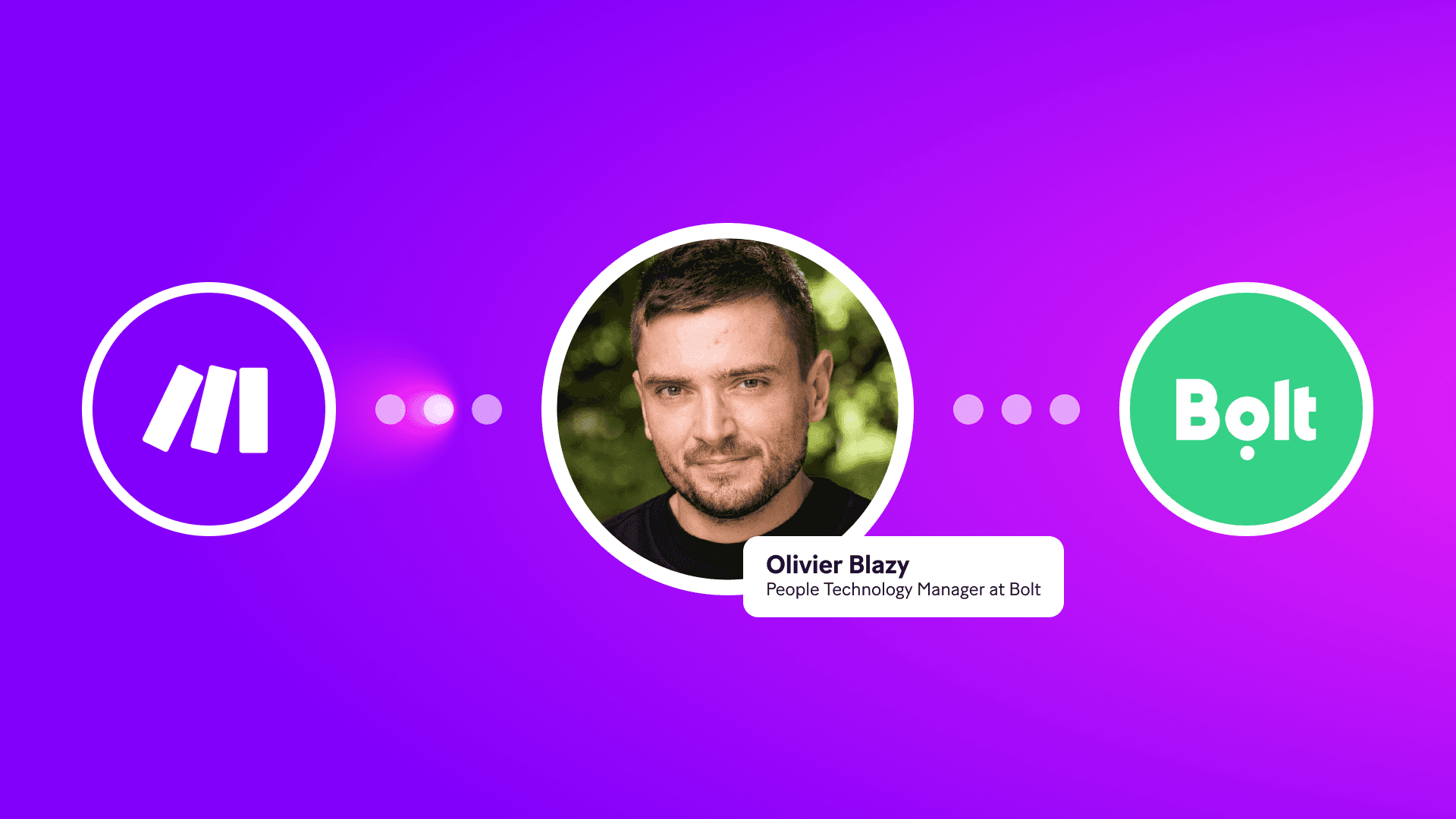Sep 3, 2025 | 5 minutes
Mawer Capital saves up to 80% of time on onboarding administration with Make and Typeform
Read how Mawer Capital used Make and Typeform to prioritize high-value leads, reduce response delays by 70%, grow NPS by 93%, and save 80% of time spent on onboarding administration.

Industry: Professional Services - Marketing and Advertising
Use case: Client onboarding, leads segmentation, fulfillment data management
Country: USA
Company size: 51-200
Apps used:Typeform, Monday.com, Keap, Slack, Google Docs
Mawer Capital is a fast-growing education and media company that helps entrepreneurs turn their ideas into profitable online businesses. With thousands of students around the world, they combine smart marketing strategies with high-end video production to launch and scale digital products quickly and effectively.
As their business expanded, so did the complexity of their operations. Manually managing customer onboarding, creative requests, and internal updates across departments began to slow them down. Especially in video production, where speed and precision are essential.
Oleksandr Kuzhel, Head of Tech at Mawer Capital, shared how Make helped them integrate Typeform with Monday.com, Keap, and Slack to eliminate repetitive work, centralize customer data, and speed up delivery.
The challenges
Before combining Typeform with Make’s automation, Mawer Capital faced three main challenges:
Manual client onboarding was delaying production
Client onboarding is one of the most critical stages of Mawer Capital’s business. Each new customer fills out a detailed Typeform designed to capture everything the video production team needs.
Until recently, handling this data required multiple steps. The team was manually reviewing and sorting responses, copying information into spreadsheets, and distributing it across tools like Monday.com (for production), Keap (for CRM), and internal Slack channels for actioning. Not only was this tedious and error-prone, but it created a significant time gap between a client filling out their form and the production team starting work.
We had a process that worked when we had ten clients. But not when we had dozens in parallel. It wasn’t just time-consuming. It put our delivery timelines at risk.
Inefficient lead prioritization process
Beyond onboarding, Mawer Capital also relies on Typeform to capture new leads through online campaigns and sales funnels. These forms include valuable qualification questions to help the sales team quickly identify and prioritize potential buyers. As response volumes increased, getting this information to the right team, at the right time, became increasingly challenging, resulting in operational inefficiency. Without a structured, automated workflow, hot leads weren’t always being followed up with promptly.
Speed matters when you’re selling digital products. If a qualified lead doesn’t hear back quickly, you’ve already lost them.
Complex data formatting for fulfillment workflows
Mawer Capital also needed to manage sending merch or printed materials to customers who purchased certain products. These tasks required correctly formatted data, including addresses, product variants, and customer details, which often came in inconsistent formats.
To prepare this data for tools like Lulu (for books) or Writtenly (for merchandise), the team had to extract and restructure the information themselves, wasting valuable time on low-impact tasks and increasing the chance of costly errors.
We were handling fulfillment manually, like a small business, manually. But our customer base wasn’t small anymore.
The solution
To eliminate manual work, improve data accuracy, and deliver faster service, Mawer Capital built a tightly integrated automation system using Typeform + Make.
Automating customer onboarding from start to finish
The onboarding process begins when a new customer receives a personalized welcome email containing a Typeform link. The form includes over 25 detailed questions, covering everything from branding preferences to video goals. Once submitted, Make takes over.
Here’s how the end-to-end workflow works:
New item creation in Monday.com: Make automatically creates a new item in a dedicated Monday board, with all form answers mapped into structured fields. This provides instant visibility into the new project.
CRM sync with Keap: All client responses, including Typeform’s enrichment data (like company info), are synced to Mawer Capital’s CRM in Keap. This ensures every department has access to consistent, up-to-date customer records.
Internal Slack notifications: To keep teams aligned, Make sends a notification to a Slack channel whenever a new onboarding form is completed. The message includes key highlights and a direct link to the Monday item.
Auto-generated Google Doc for editors: Since the form is extensive, Make also compiles the full responses into a cleanly formatted Google Doc. This document is attached to the Monday task so editors can use it easily.
Using Make and Typeform saves us 70–80% of the time we used to spend copying data. Now, everything runs behind the scenes. The team just logs into Monday and starts working.
Smarter lead qualification at scale
Mawer Capital also automated its Typeform dynamic lead scoring process across sales campaigns to determine lead quality and intent more quickly and easily.
Once a Typeform is submitted:
Make evaluates the responses in real-time, using conditional logic to assign a lead score based on business size, budget, and readiness to buy.
Qualified leads are automatically pushed to the sales pipeline and assigned to reps based on internal routing rules.
Cold or low-intent leads are deprioritized and tagged for nurture campaigns.
Enriched metadata from Typeform (such as company size or location) is added to each record in Keap, helping the sales team tailor their outreach.
The integration ensures that every new lead is instantly processed and routed, giving sales reps a real-time, standardized way to segment and score them. Thanks to this proactive approach, qualified leads get immediate follow-up, maximizing the chance of conversion.
Typeform’s logic and design make it easy to ask the right questions. And with Make, we instantly know which leads are worth following up on.
Cleaning and formatting customer data with AI
Mawer Capital used Make and Typeform to automatically extract and format merch fulfillment data (name, size, address, delivery preferences) before sending it to vendors.
The process is handled automatically using OpenAI:
Data cleanup and formatting: Raw data from Typeform is passed to OpenAI via Make, which structures it into the exact format required by fulfillment partners.
Error checking and validation: If fields are missing or improperly formatted, the workflow flags them for review, saving the team from failed deliveries or reprints.
Automated delivery to fulfillment tools: Once structured, Make sends data directly to the vendor’s system via API or email, triggering the production of merch.
AI lets us clean messy data without spending hours fixing it. With Make, it just flows.
The results
Since implementing Make and Typeform, Mawer Capital has improved efficiency and gained stronger operational control:
Saved up to 80% of time spent on onboarding administration
Gave internal teams instant access to key customer data
Automated lead prioritization and reduced response delays by 70%
Simplified data syncing between Typeform, Monday.com, Keap, Slack, and Google Docs
Improved NPS by speeding up production workflows, on some product stages by as much as 93%
Free up time for better sales and happy customers
By combining Typeform’s intuitive data collection with Make’s powerful automation, Mawer Capital redefined how it qualifies leads and onboards clients. What once took hours now takes seconds, giving their team the freedom to focus on creative, high-impact work.
The integration between Make and Typeform has become essential. It’s clean, reliable, and saves us from drowning in spreadsheets. For us, it’s a complete operational backbone.
Ready to build smarter workflows like Mawer Capital? Try Make with Typeform today.








